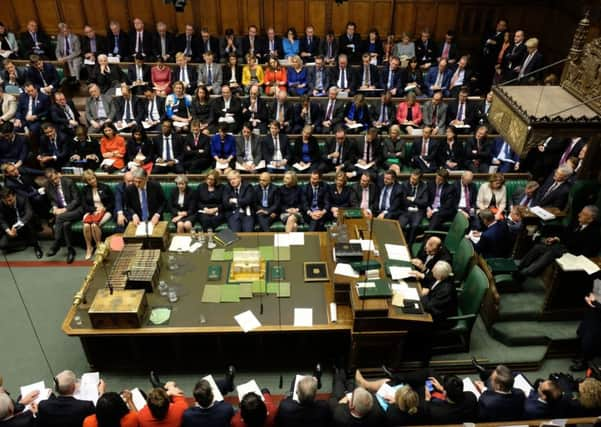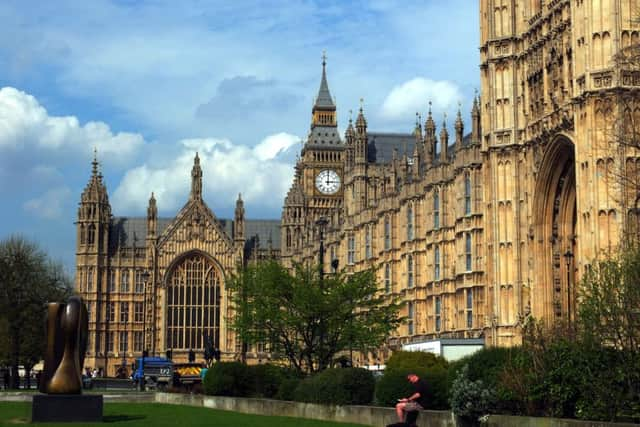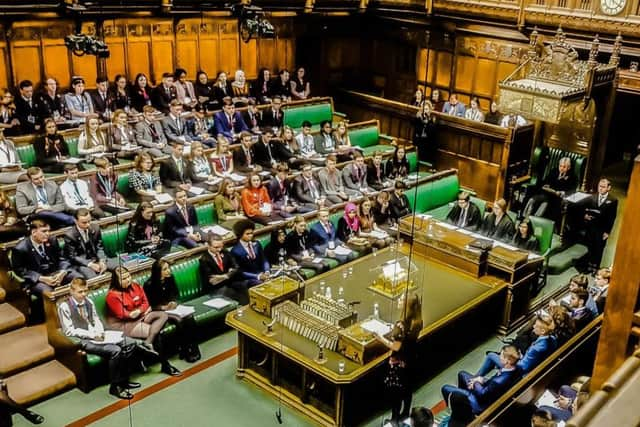How loudly does your MP speak for you? Our guide to Leeds MPs' parliamentary performance


They are paid to be your voice in Parliament – but it seems that many of them have lost their own.
A new analysis of parliamentary performance by the Yorkshire Evening Post has revealed Leeds and Wakefield’s quietest MPs – and there are some surprises.
Advertisement
Hide AdAdvertisement
Hide AdThe findings, based on data from the TheyWorkForYou website, compared the number of times every MP has spoken in debates, received written answers to questions and voted in the House of Commons in the past 12 months.


One of the most notable performances was that of Hemsworth MP Jon Trickett, who has spoken in just seven debates over the past year – making him the fourth quietest MP from the whole Yorkshire region in this category.
But with FOUR times as many written answers (1,603) to his name as his nearest colleague, Mr Trickett can still claim to be one of the most vocal constituency politicians in the country.
Also making an appearance on the ‘quiet’ list was Morley and Outwood Conservative MP Andrea Jenkyns.
Advertisement
Hide AdAdvertisement
Hide AdBut her low participation in debates (8), written questions (13) and votes (20 per cent) is explained by the fact that she was on maternity leave last year.


In North East Leeds meanwhile, Labour’s Fabian Hamilton, who serves as Shadow Minister for Peace and Disarmament, also scored among the lowest for debates spoken in (11) but had one of the highest turnouts for major votes (90 per cent).
And in Pudsey, Conservative MP – and assistant Government whip – Stuart Andrew scored low in the number of debates spoken in (8), the joint fifth lowest with his Conservative colleague Miss Jenkyns, and in written answers (9). However his voting turnout was the second highest at 95 per cent.
In terms of written questions alone, Pontefract & Normanton MP and former Labour leadership contender – and current select committee chair – Yvette Cooper was among the quietest, submitting none at all in the last year.
Advertisement
Hide AdAdvertisement
Hide AdBut she spoke in 51 debates and had a voting rate of 81 per cent.


Meanwhile Leeds’s newest MP, Leeds North West’s Alex Sobel – who was only elected in June and therefore can only be analysed for a partial year – has already notched up 23 debates and 53 written questions, giving him a record to rival some of his long-serving colleagues.
The Yorkshire Evening Post’s findings have led to one political analyst calling for greater transparency about the multiple roles and responsibilities held by MPs – and a cleaning up of our “not perfect” parliamentary system.
Observers say the overall figures are skewed by the fact that MPs who hold cabinet and shadow cabinet posts, as well as whips, the speaker and deputy speakers and a number of other high profile positions such as select committee chairs, are restricted from taking part in many votes or debates.
Advertisement
Hide AdAdvertisement
Hide AdDr Ruth Fox, from the Hansard Society, said: “Speaking or asking questions in the House of Commons is just one aspect of an MP’s complex role and is heavily dependent on their position in the House.


“In our system, MPs are the pool from which ministers and their opposite numbers are drawn. The rules and procedures that support this are not perfect but they maintain the constituency link between ministers and the people they serve.
“Parliament couldn’t function without MPs performing a range of roles.
“Where the House of Commons could help itself is by being much clearer about the particular responsibilities some MPs may have that affect their participation records, so that when data like this is published it is much easier for people to understand why there are significant differences between them.”
Advertisement
Hide AdAdvertisement
Hide AdMany of the area’s MPs today defended their parliamentary performance as revealed in the TheyWorkForYou data.
Hemsworth MP Jon Trickett, who is Shadow Minister for the Cabinet Office, said his department is not one of those subject to many debates. However he stressed that he and other MPs work extremely hard in their constituencies, and he has an “open door policy” and 330 live cases at the moment.
“When you are wanting to project ideas there are other ways to do it,” he said of his proclivity for asking questions instead.
However he stressed it was “not a competition”.
Morley MP Andrea Jenkyns said: “Due to being on maternity leave in the constituency some of my participation statistics in Westminster are not where I would like them to be, but because of my circumstances, I made the decision to place more of an emphasis on my crucial constituency work, which can help people when they are at their most vulnerable.
Advertisement
Hide AdAdvertisement
Hide Ad“This year I have still worked with hundreds of constituents on 1,403 cases. I have also made sure I attend vital Brexit votes, such as triggering Article 50 and passing the European Union (Notification of Withdrawal) Bill in Parliament.”
Leeds North East MP Fabian Hamilton said: “Modern politics is not just about making speeches in the House of Commons – it is about casework and engaging with your local constituency and local people at home. This is why I, with the help of my office, have dealt with thousands of cases in Leeds North East this year.”
SOME REASONS FOR WHY AN MP MIGHT BE ON THE ‘QUIET’ LIST
Former party leaders tend not to speak much in the House – some see it as bad form towards their predecessors. This might help explain why Doncaster North MP Ed Miliband has one of the worst records for written answers (seven in 12 months).
MPs with front bench positions – either in Government or opposition – are precluded from speaking beyond the particular area of their policy brief.
Advertisement
Hide AdAdvertisement
Hide AdOpposition front bench spokespersons tend to submit a lot of written questions – but it’s often to find out things from the government department for their policy brief, rather than in relation to their constituency.
This year we also have to take account of the General Election, which would affect the participation data of new MPs and those with new roles.
Some MPs will also have heavier caseload burdens – for example an MP representing an urban inner-city seat in Yorkshire will likely have a much bigger caseload than an MP representing a well-off suburban or rural constituency. That will affect how they assign their time and what tools they use in their constituency work.
Speaking in debates might work in some cases but MPs, particularly newly elected ones, have to spend hours sitting in the chamber waiting to be called to speak, and sometimes they have clashing commitments – for example select committees.
SOURCE: THE HANSARD SOCIETY